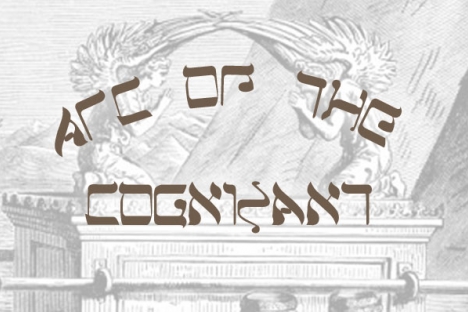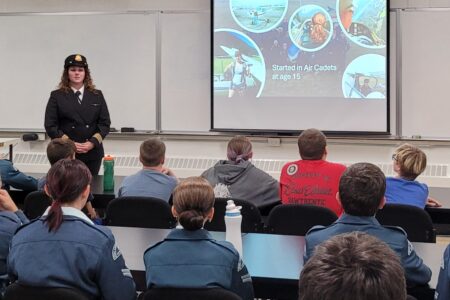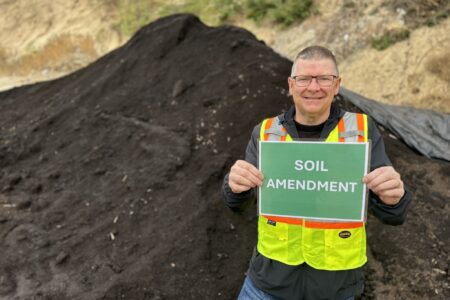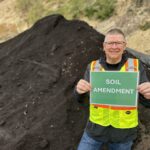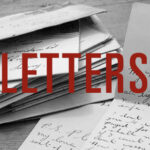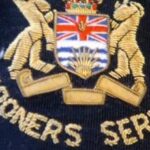Column: Elders and respect; take a lesson from Indigenous societies
“An Elder generally has longstanding recognition in their community and is well-respected for their actions, words, and character. Elder is not a self-designated term for individuals wishing to share cultural knowledge or teachings.
“Elders are recognized for their contributions within the community and experience in sharing knowledge and tradition. A process is essential to support meaningful engagement with Elders, Knowledge Keepers, and cultural advisors.”
From https://downiewenjack.ca/our-work/protocols/
A change in cultural climate: we the settlers learn respect for natives
Please read the foregoing epigraph to today’s Arc, then ponder this: if you knew this statement was about ‘old people’ in Canadian “mainstream” culture – and not about First Nations’ Elders – how would it change your feelings?
I feel pretty sure you would not be able to think of old people — in your English-speaking, Euro-Canadian community — as indigenous people think of their old people. It just is not how Canadians think about the elderly and senior, who are a demographic of increasing size and a source of some serious policy worries today. [How to pay for their healthcare when there are so many of them? Is MAID ethical? What to do when they lose their cognitive faculties? Can we encourage them to retire so jobs at the top of the pay scale can be vacated? Is it better to put them in institutions or leave them in their home with care-givers?]
Also, I am quite sure Canadians who aren’t elderly rarely consider that the history of Canada and Europe matter much. Or that knowing traditions of Europe or of Europe’s spiritual history is valuable and deserves to be valued.
What is natural and normal for the native people, is not so for the settler/colonist way of life.
Why do we draw such a clear line between what is good and significant for the First Nations of Canada, with their cultural tradition – of regard for Elders and preserving historical norms – and what is good and valuable for ourselves?
Do Euro-Canadians respect their Elders?
A quick google question finds this article: What is the status of the elderly in the modern world?
https://crr.bc.edu/jared-diamond-elderly-have-low-status/ and https://academic.oup.com/psychsocgerontology/article/76/9/1799/6029775
Hmm. There it is in simple English. Old and elderly have low status among us. That seems a fair statement of the situation for the aging among us.
I would like it to be otherwise, but there are reasons why the old are not highly regarded. [please see Appendix One].
But the reported feeling of disrespect for age is not generalized so widely that all of us feel this way. My peers in Nelson, when I raise the issue, assure me that here in our town they experience much kindness, respect, and consideration. I am sure other communities would find the same.
Still, I shall pursue my point about how Elders are living in modern conditions. I find Elders are seeking more sense of their social roles; maybe I have an idea to promote that end.
The Status of History and Story among Settler and Native
I’m an historian of advanced years, and in my lifetime the historians of Canada and the US have learned that indigenous history has to be treated with respect; at the age of 10 or 12 I learned in school not to respect that history. (1961)
Colonists ignored or denigrated native culture quite wrongly; for that we are now seeking reconciliation with the First Nations. We also must reclaim our own history, of which so many of us are ignorant.
Canadian courts now treat indigenous oral history and testimony with respect.
But still, our universities and academies of learning do not accord oral history and popular legends about the past of native people as possessing the same level of fact and truth as rigorously-researched professional history.
Understand, there are two types of History:
(i) professional, as practiced in academia and among elites, and
(ii) popular, as practiced everywhere else in the culture.
The professional historian knows factual truth as established by a very high standard of scholarly peer review. The popular historian, who knows many legends and immensely-entertaining stories, and can tell them orally on YouTube or on podcast — or at firesides — is not attempting to be an historian as defined by the scholars.
This, the two types of history, is a big topic in itself; I have provided links to some excellent discussions about History and Story in Appendix Two.
Euro-Canadians, their History and their Elders
No one in our mainstream culture, as learned in schools, media, books, and the multitude of sources which inform the “settler” culture, think that history is best learned from old people. They might respect an elder’s personal reminiscence, and be entertained by stories of the old days – meaning, the twentieth century – but they do not equate old age with knowing History.
Indigenous people have a different take on the relationship of Elder and the Past. Indigenous peoples in Canada treat their Elders as “knowledge-keepers” for the history of The People. This history is popular, not professional or academic. A knowledge-keeper of indigenous peoples does not earn that status by acquiring a PhD in History at a Canadian university.
Native scholars in our universities have to conform to the standard of academic History; Elders, telling stories of native pasts, are not so constrained.
Conclusion: Elder, claim your role.
Canadian Elders – I include myself and say “we” – need to know some history of Canada and our local areas, so that we can tell younger people about it in an entertaining way. In this, we can emulate the Elders of indigenous folk.
What I am about to say is hard to put into practice, but here it is anyway: the Elders in our society need to get better at story-telling and telling history. We serve our society and country with knowledge of our history, and it is not indigenous history I’m referring to. We need to be keepers of our story.
You might say that it’s a self-serving recommendation, and I suppose it is, since I personally am educated in History and can impart tales from Canada’s past. But really, any Elder can do it, with a little time taken to read some history. And then, find a story-tellers’ guild or club if you think you need to learn the basics of telling a story in an entertaining manner.
Herewith, some assistance in following my advice.
https://www.cbc.ca/history/GENCONTSE4EP99CH10PA1LE.html
https://www.penguinrandomhouse.ca/series/EK4/canada-a-peoples-history
https://libguides.tru.ca/canadianhistory/books
These are easy-to-understand popular histories, but by respected academics.
Canadian History is much more than the criminal aspect of colonial policy toward First Nations; we do owe restitution, compensation, and reparation, yes, for the wrongs done for which amends can be made. Please know this: Euro-Canadians do not bear some racial guilt for the injustice done to natives by our ancestors before we were born. But this is a topic for another day.
A plea: have your Story-telling skills tuned up!
I must offer some help to readers, if anyone needs to learn how to tell stories. There are wonderful organizations that aim to teach story-telling skill-building:
https://www.storytellers-conteurs.ca/en/local-groups/British-Columbia/Nelson-Storytelling-Guild.html
https://www.storytellers-conteurs.ca/en/local-groups/British-Columbia.html
Elders can be contributors to the cultural and civic lives of our communities in this way, and we capitalize on the strengths we have. It is up to we Elders in the first place to reclaim a higher status for Elders in Canada, a status that is enjoyed among the indigenous cultures.
We too, we descendants of colonists, can speak proudly about “Our People.” There is much in our history to feel good about. Learn it. Tell it.
___________________________________________________________________________
Appendix One: The Elderly are not ‘Elders’ in modern society
https://hraf.yale.edu/ehc/summaries/status-and-role-of-the-elderly
https://www.who.int/news-room/fact-sheets/detail/ageing-and-health
https://www.apa.org/monitor/2023/03/cover-new-concept-of-aging
Appendix Two: History as Story and as Academic Discipline
Essays on how our ancestors in medieval and pre-modern ages told the History of our Peoples.
https://irishmyths.com/2021/02/20/differences-between-myths-legends-folktales-fairytales/
https://historymedieval.com/myth-and-power-the-role-of-legend-in-medieval-society/
“We then are left to question the role of a Historian whether is it as a storyteller merely recounting events? Or should getting some historical interest generated in the public more important to the historian than factual accuracy?
Popular history is often criticised as being nostalgia fodder seeking to entice an emotive reaction rather than provide facts.”
https://reviewcanada.ca/magazine/2012/01/does-the-past-have-a-future/
“Audiences flock to the spectacle of the screen where a sober presentation of the past is often traded for compelling characters, shocking plot twists and breathtaking cliff-hangers. Glossy war films, rolicking bio pics and rich period pieces keep us binge watching history. But the cost of riveting entertainment is often the truth. Perhaps no other genre misleads us more…”
https://historycollection.com/how-the-entertainment-industry-distorts-history/
https://www.lovebritishhistory.co.uk/2020/09/historical-accuracy-in-movies-how.html
And a serious essay on how academic history is failing the US public.
https://warontherocks.com/2018/12/the-historical-profession-is-committing-slow-motion-suicide/


